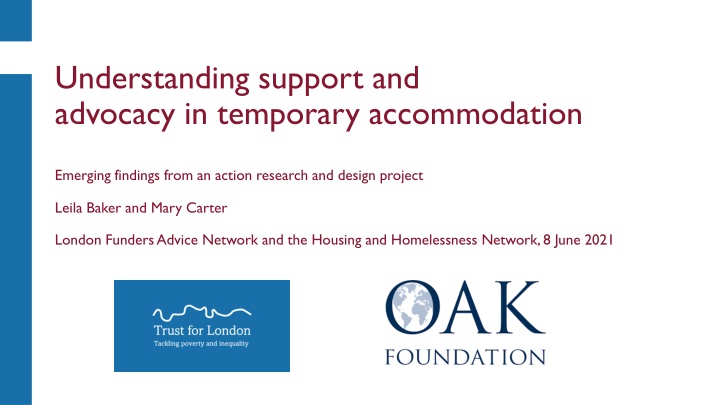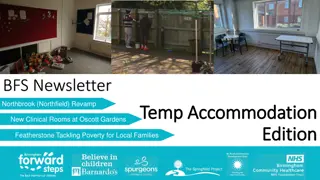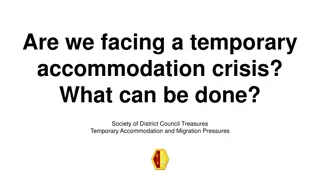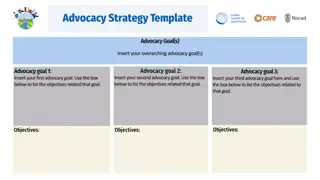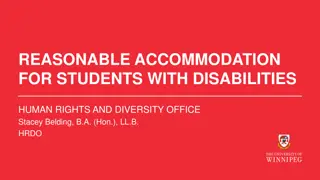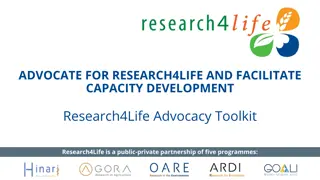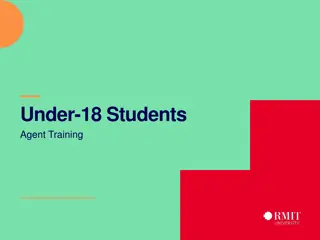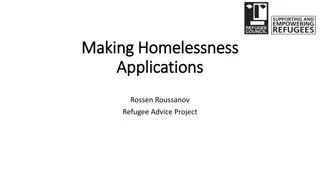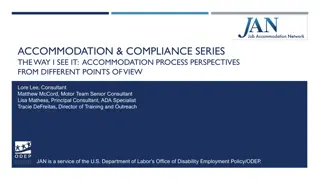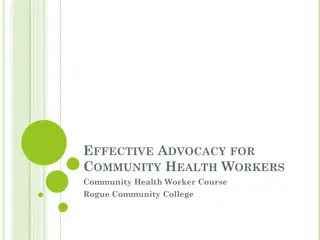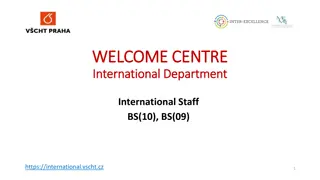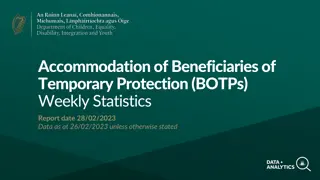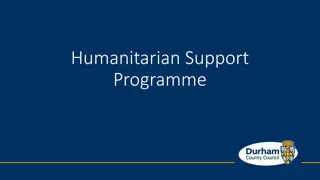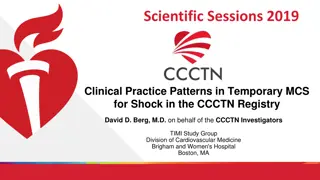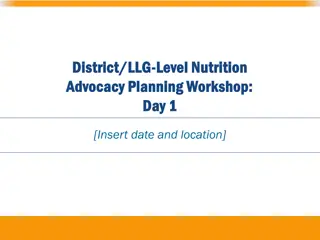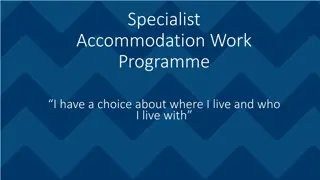Understanding support and advocacy in temporary accommodation
In this project, Leila Baker and Mary Carter delve into the complexities of providing support and advocacy in temporary accommodation settings. Highlighting the challenges faced by individuals living in temporary accommodation, the project explores ways to improve support systems and drive positive change. Through action research and design approaches, the team uncovers valuable insights to enhance services in this crucial area.
Download Presentation

Please find below an Image/Link to download the presentation.
The content on the website is provided AS IS for your information and personal use only. It may not be sold, licensed, or shared on other websites without obtaining consent from the author.If you encounter any issues during the download, it is possible that the publisher has removed the file from their server.
You are allowed to download the files provided on this website for personal or commercial use, subject to the condition that they are used lawfully. All files are the property of their respective owners.
The content on the website is provided AS IS for your information and personal use only. It may not be sold, licensed, or shared on other websites without obtaining consent from the author.
E N D
Presentation Transcript
Understanding support and advocacy in temporary accommodation Emerging findings from an action research and design project Leila Baker and Mary Carter London Funders Advice Network and the Housing and Homelessness Network, 8 June 2021
Why a project on support and advocacy in temporary accommodation? The Oak Foundation (TOF) and Trust for London (TFL) wants to better understand the issues in carrying out support and advocacy work with people in temporary accommodation (TA) that can help reduce the use of TA in London. They were interested in questions like Where is the potential for greatest change? And what would it take to make that happen? How can funders better support those currently carrying out support and advocacy in TA? In particular, how can funders better support people with experience of living in TA to advocate for change?
What do we mean by TA? The challenge and risks (for the research and for funders) of setting limits or parameters Defining TA #1 Different routes in (incl housing options and social services) but people s problems/circumstances intersect lack of/diminished resources (financial, support networks); difficult/traumatic experiences; vulnerabilities (children, physical or mental health); inequalities. Defining TA #2 Myriad properties incl B&B, hostel, HMOs, scattered flats. Problems in TA Standards/disrepair, facilities, length of stay, dislocation, property not appropriate for person/family placement, treatment of residents. Advocacy and support requires nuanced understanding of intersections of routes in and property use
Action research and design approach Scoping: Rapid review of the evidence, scoping interviews Fieldwork: 10 in depth interviews, 5 communities host conversations Sense making: 3 workshops with funders and stakeholders The work is ongoing lots happening encouragement from the funders to work in open and make connections feels right and has been welcomed.
Features of groups carrying out support and advocacy work Hyper local and grassroots often set up from the grassroots to address a wrong. TA dimension often incidental to other issues (domestic violence, immigration, local community development) or related to advice provision (housing, debt). Community development, organising, solidarity model the exact methods vary (funders can support across the piece) but all the methods involve reaching TA residents by word of mouth/knocking on doors. Limited networks/networking often smaller organisations with limited resources, reliant on volunteers and focussed on frontline support, building trust, bridging and bonding. Connections tend to reflect the specialist focus rather than links with others working in TA across London. Legal back up is important component for change and challenge BUT lack of legal aid (lots of work pro bono); no appetite for class actions (LAs respond to legal challenges; fear of losing them); access to legal support uneven (dependent on project links).
Features of groups where people with experience are leading or involved Homelessness and housing processes can be traumatic and brutalising any work needs to take account of power, trust, and the importance of decency, kindness and respectful behaviour. Community development, organising, solidarity, participatory action research effective in building solidarity and community, can achieve real change and provides opportunities for personal development and recovery from trauma. BUT takes time, especially to develop own agenda for action and then follow it through. Rights and entitlements Ultimately this is about rights and entitlements and asserting those which can be very difficult. Care not to fall into the trap of expecting people with experience to sing for their supper . Early help - Getting people early help when they move into TA can help them avoid debt and be empowered to recognise and feel safe to challenge unlawful practice. It can be quite uneven the way people find advice and legal help, so improved marketing is needed. Young people told us you only learn about this when you already have a problem.
Funding options from the evidence Core funding for groups/orgs (including hyper local) working on legal, frontline or community work. Many community organisations receive no specific funding for their work with people in TA. Create spaces where people, groups and organisations carrying out this work can come together and work out what kind of help they want. Supportive challenge around linking to policy as well as enabling bridging and bonding (connections across practitioner networks). Create funding that is suited to supporting people with lived experience to advocate for change. BUT beware of falling into the traps and pitfalls of e.g. tenant participation: people shouldn t have to sing for their supper , this is about rights and entitlements. Training programme working out who and how to fund a training programme on legal advice for VCS orgs; and experts by experience training for local authorities including housing options teams. Funding pot for very small grants with few or no strings attached to pay for research and communications work carried out by grassroots groups, and community events/celebrations.
Thank you for listening Leila Baker and Mary Carter Leila@leilabaker.net mary@mjcarter.org @LeilaRBaker @cart_on
